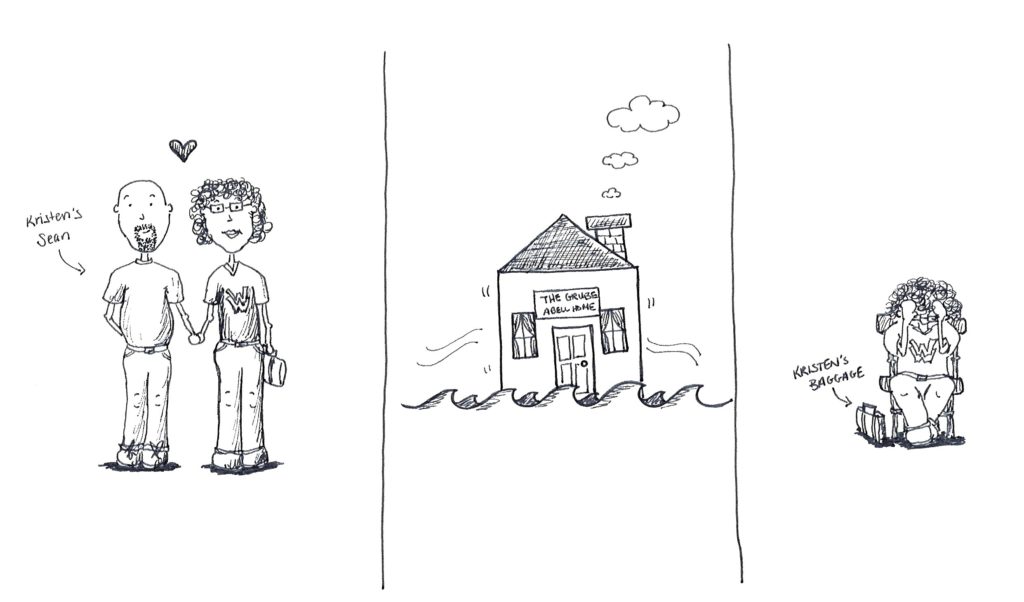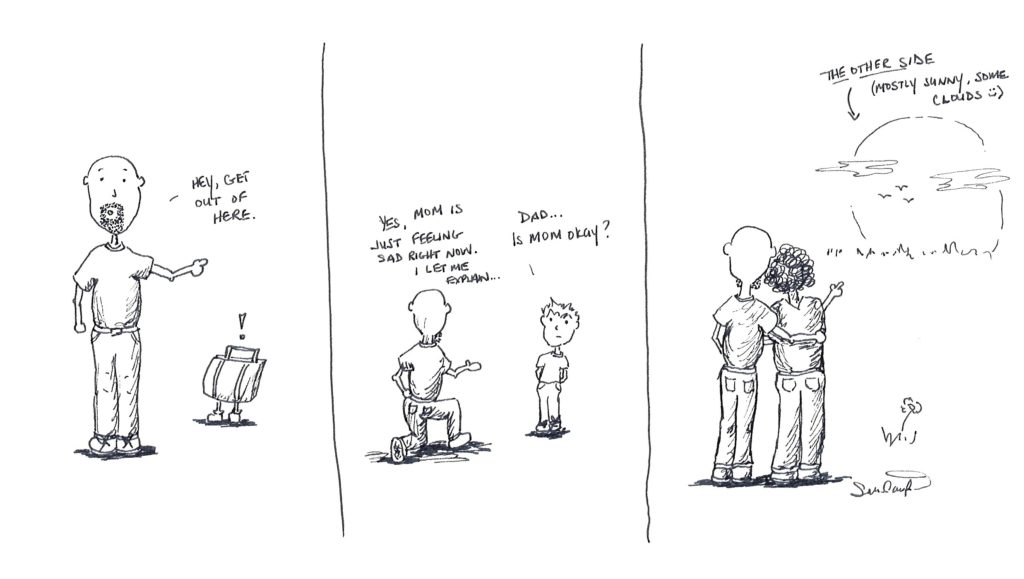by Sean Grube
As many of you may know, my lovely partner, Kristen Abell, is a persistent advocate for mental health in the student affairs field. She’s extensively documented her own battles with depression. I’ve been asked to talk about what it’s like to be a partner (hopefully a supportive one) to someone that lives with depression.

First and foremost, it needs to be said that in our family, depression tends to be an ocean tide – it ebbs and flows. It might be tempting to assume that Kristen‘s depression impacts me daily, but I tend not to see it that way. For the most part, Kristen and I live our lives as an engaging couple with a stubborn eight year old and a spoiled dog. There are good times, and there are difficult times, just as there are in any relationship. It feels a bit obnoxious for me write about how my partner’s depression affects me. It does impact me, but Kristen is the one that’s battling through a really difficult situation, and I consider my own emotional state a distant second. I guess that’s a pretty apt description of how I approach those difficult days. In the nearly fifteen years that I’ve been with my lovely partner, there has probably only been a total of eight or nine months where I could really feel Kristen’s depression. My partner is sad sometimes, it’s difficult for her to do some things, and there is occasionally a bit of an emptiness in our house. When Kristen is having a tough time navigating through her depression, it’s natural for me to have some feelings of sadness or self-pity. I’ve come to believe that in those times, I’m starting to feel the weight of her depression (admittedly, just a small fraction of it). I think because the burden isn’t mine to bear, I’m able to unload it a little easier than Kristen. I’m not sure that will make sense to everyone, but it’s the best description I can provide.

However, more than anything, I reflect on memories of the strength and love in our family. My tendency is always to be the fixer, and I know that isn’t what my partner needs or wants during those tough times. So I direct my “fixing” to the things that I think will make our family feel better. I make sure my partner knows that she is needed and loved. I make sure and talk to my son about how his momma is feeling. It’s not easy for an eight-year-old to understand depression, but the one thing our family absolutely wants to avoid is pretending everything is okay or trying to hide Kristen’s mental health. I certainly don’t have a magic bullet. Overall, I would say that I just try to be a good partner. Sometimes Kristen is sad, and sometimes it’s tough for her to see the other side of the sadness. Sometimes it’s tough for me, too. We talk about those things, we find a way to make it through the gloom, and we talk about making tomorrow a little bit brighter than today. It’s seldom easy, but we’ve always managed to get to the other side.
Originally posted at the Student Affairs Collective on May 5, 2014.
